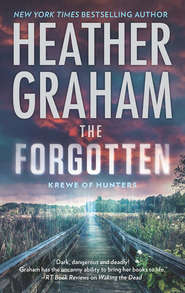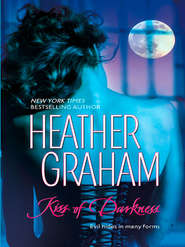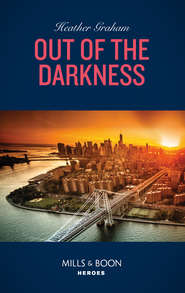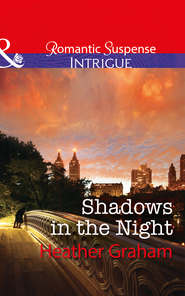По всем вопросам обращайтесь на: info@litportal.ru
(©) 2003-2024.
✖
Wicked Deeds
Настройки чтения
Размер шрифта
Высота строк
Поля
“You’re talking movies, not the written word!”
Griffin laughed. “Yeah, well? Without Poe, we wouldn’t have had the movies. A few years back—I don’t know how many—there was a movie with John Cusack playing Poe. In that version he died to keep his love from being murdered.”
“That’s not how he died! That was a movie.”
“Ah-ha! But you see, no one knows how he did die—that’s the point, isn’t it?”
“Yes, but the movie had him engaged to a pretty young thing. In reality, he was about to be married—as I was telling you—to Sarah Elmira Royster Shelton, she with the brothers who might have been murderers, and with whom he’d been in love when he went to college. Her father hadn’t approved and he’d destroyed all of Poe’s letters to her, and so young love had been thwarted. Anyway, years later, her husband was dead and Poe’s wife, Virginia Clemm, was dead, and Poe and the woman he’d loved in his youth met up again. Poor man, he was just forty when he died. But Sarah Elmira was no sweet young innocent—she was about his age, a mother, all grown up.”
“Killjoy,” Griffin told her, and Vickie laughed softly.
“I don’t mean to be. I love a John Cusack movie, too. I think I would have found a different way to explore what had really happened. I mean, he was found delirious in clothing that wasn’t his! How did that happen? He’d joined the temperance society before he left Richmond, but of course, no matter how you look at it, the man was an alcoholic—though it seemed that he was a binge drinker rather than a habitual drunk. I can’t help but think sometimes that he might have had a much better life if he’d lived in our day and age. So much information disappeared right along with him regarding the days he was missing! His death was as much a mystery then as it is today.”
“‘Once upon a midnight dreary, while I pondered, weak and weary...’”
Very determined, Griffin went ahead to repeat a good section of the famous poem. What he couldn’t remember, he thought he faked with a tremendous amount of panache. Vickie was grinning as he gave her his dramatic interpretation, so he was pretty sure that she knew when he was doing his ad-libbing.
“Well, you know the title, you know it’s a poem and you know it’s by Edgar Allan Poe,” she said, amused. “I’m totally impressed.”
“Wait and see how I wow people!” he told her.
He pulled into public parking near Westminster Hall and Burying Ground. “Poe’s grave, at your command, my love.”
She looked at him and smiled. “So you’re going to wow the dead people with your Poe-etic license?” she asked him.
“Sometimes,” he reminded her, “dead people are far more important than the living.”
“Sometimes,” she repeated.
The old Presbyterian church itself—long since deconsecrated and now known as Westminster Hall—offered tours on certain days of the week with reservations, and special tours when prearranged. The catacombs and the inside of the structure were only available through those special times and reservations. But the burial ground surrounding the old church was open to the public, and historical markers identified many of the notable dead.
“Poe was buried in the back at first,” Vickie said, walking quickly ahead of Griffin.
She wasn’t heading toward the back, though, but rather toward the place where Poe had been moved when admirers of his work had finally gotten together to manage the creation of a fine monument to him.
“In an unmarked grave!” she said. “He had a cousin—Neilson Poe—in the city of Baltimore. Neilson was finally contacted after Poe was found and brought to the hospital. But the thing is, Poe never came back to his senses. He was delirious from the time he was found to the time he died.”
There were other visitors to the burial ground, some wandering around to view other notable graves, some hovering by the monument to Edgar Allan Poe.
“Miss, excuse me—is he really here? Or is this just the monument? You seem to know a great deal.”
An attractive woman of about forty or forty-five had stopped in front of Vickie; she’d apparently heard her speaking.
Vickie flushed. “I don’t know that much. I just always loved his work. I do know that he was exhumed and moved here—with other members of his family, Virginia Clemm, his wife, and Maria Clemm, her mother. You can see their names if you walk around the monument.”
The woman thanked her.
Others were gathering. Some came with curiosity—and some with absolute reverence, bowing their heads, speaking softly and then just standing there, as if by gathering at his grave they could breathe in some of his brilliance.
Griffin noticed that a boy standing near the monument suddenly jerked—as if he’d been startled or touched by someone unseen.
He looked around the monument, but saw nothing but other visitors who had come to pay their respects to Baltimore’s famous poet.
Griffin walked around the monument himself, then stopped short.
A man stood there, with dark hair and a sad face. He seemed to be dressed oddly for the day and the time.
The man saw Griffin. He lifted his hand in a salute, staring at Griffin gravely.
Griffin had never been the Poe reader that Vickie was. Of course, he’d never been any kind of a historian, either—able to rattle off names and dates with such amazing conversational ease.
But even he recognized the figure.
For a moment, he thought that the man was an actor, out to entertain Baltimore visitors at the burial ground.
Then the man disappeared, as if he’d faded into the stone itself.
And Griffin could only presume that he had just seen the real Edgar Allan Poe.
* * *
The news was out; it was everywhere.
Baltimore had lost another great writer, and how oddly, how eerily! He had died in a wine cellar—at a restaurant called the Black Bird, a restaurant that entirely honored the great writer Edgar Allan Poe.
Boston claimed Poe for its own—and had just added a life-size statue of him with a raven on Boylston Street. But in life, Poe hadn’t much loved the city of his birth. To be fair, he had lived and worked more in Virginia and Maryland. It seemed, however, that just as “Washington slept here” was a common refrain, Poe was also coveted. And it was only right. New York City had quite a claim on the man, too—in the Village, and up in the Bronx, where he had last lived, and where his mother-in-law, Maria Clemm, had been waiting for him to come retrieve her.
Right now, Baltimore had renewed their claim on the man—and was musing over what facts were known about his death—and how they compared with the death of Franklin Verne.
Griffin and Vickie had come to the police station to meet up with Carl Morris, having given up the illusion that they were on any kind of a vacation or even off for the weekend.
Maybe they had been on the job from the moment the dream had first plagued her that morning, Vickie thought. And, if not then, they had become completely involved once Jackson had called, or even as soon as Monica Verne had reached out to Adam.
Monica’s resolve and passion couldn’t be ignored. Vickie just wished that she hadn’t brought that passion to the media so quickly.
Monica Verne was offering a hundred-thousand-dollar reward to anyone who could lead her to the true cause of her husband’s death.
“Great, just great!” Griffin muttered. “Now we’ll get calls from every demented soul in the city.”
“Well, maybe someone will come forward with good information,” Vickie told him.
They were standing with Morris and a group of officers in the center of the work floor of the station; one of the officers had brought up the live footage on the large screen that hung from the room’s ceiling, available anytime there was some type of video footage that should be witnessed by all.
Monica must have called the local news station just minutes after Griffin and Vickie had left her home; any self-respecting journalist would have hurried to her with all possible speed.
Phones were always ringing, lighting up, at the police station. It almost appeared as if an alien ship sat above them, there was such a display of sound and light as the show aired.
Morris looked at Vickie, shaking his head sadly. “We can hope, but...for the most part? This kind of thing takes up hours of work, and yields little. But yes, we can hope.”











